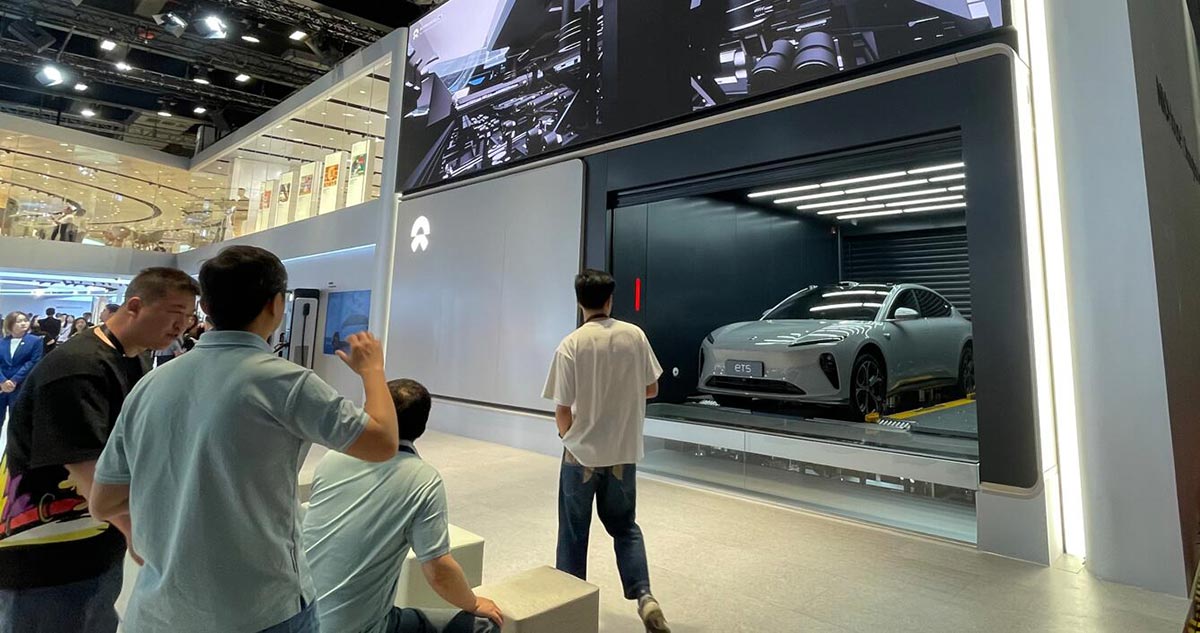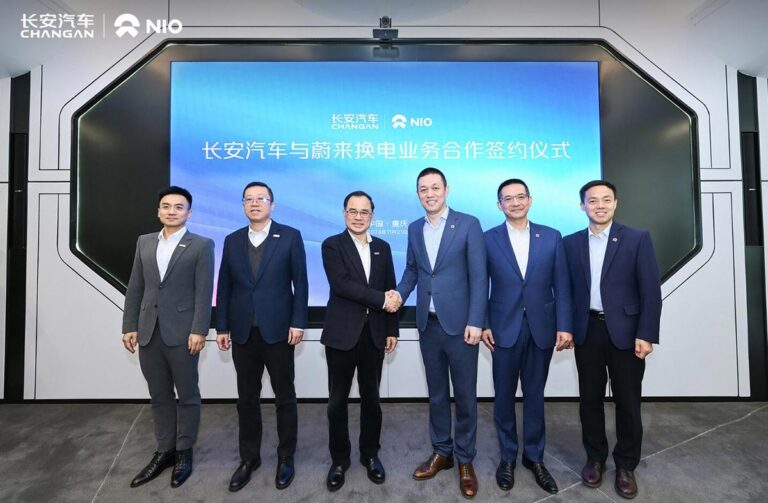Nio's shared battery packs will be the next generation of mass-market battery packs that support ultra-fast charging, and the battery swap experience for Nio customers will only get better, William Li said.
(Image credit: CnEVPost)
Nio (NYSE: NIO) told current vehicle owners that their battery swap experience will not be affected, following announcement of a partnership with automotive giant Chongqing Changan Automobile.
What Nio will share will be the next generation of mass-market battery packs that support ultra-fast charging, William Li, the Chinese electric vehicle (EV) maker's founder, chairman and CEO, wrote in the comments section of a statement on the Nio app today.
Owners of Nio-branded vehicles can rest assured that the battery swap experience will only get better, Li added.
Earlier today, Nio announced that it signed a battery swap business partnership agreement with Changan today in Chongqing, a city in southwest China where the latter is headquartered.
The two companies will jointly facilitate the formulation of standards for swappable batteries, build and share the battery swapping network, develop swappable vehicles, and establish an efficient battery asset management mechanism, Nio said.
Nio's statement today provided no details about the partnership, though internal remarks by Li yesterday revealed some information.
Li initiated an internal talk and Q&A for the company's entire workforce on November 20, focusing on topics such as recent organizational optimization, volume pressures, and the direction of the next two years.
Responding to an employee's doubt about the sustainability of the company's battery swap business, he said battery swap is a huge first-mover advantage for Nio and the time has come to open it up to the entire industry.
"Our battery swap business has reached a point where it is ready to be opened to the public, and we will be sharing our standard for the next generation of battery packs, the 800 V high-voltage, fast battery swap platform, with the entire industry," Li said.
This seems to mean that the more than 2,000 battery swap stations that Nio currently has will be exclusive to the brand's users, while the ones that will be open to its partners are likely to be the next-generation stations that will be installed in the future.
Nio completed its first battery swap station in Shenzhen on May 20, 2018. The company's initial 200 stations were first-generation and could only hold up to five batteries.
The company started putting its second-generation battery swap stations into operation in April 2021, with a maximum capacity of 13 batteries.
In April this year, Nio's first 10 third-generation battery swap stations came online, bringing the number of stations at that time to 1,342. These third-generation stations can store up to 21 battery packs.
As of today, the company has 2113 battery swap stations in China, providing more than 32 million battery swap services in total.
Nio currently sells models based on the mainstream 400-volt NT 2.0 platform, and the company will launch the first model under the sub-brand codenamed Alps next year, which is expected to be based on the 800-volt NT 3.0 platform.
Alps' first model, internally codenamed DOM, will be the first model under the Nio umbrella based on the next-generation platform NT 3.0, local media outlet AutoPix said in an October 13 report.
The NT 3.0 platform will have several upgrades over Nio's current NT 2.0-based models on sale, including the adoption of the currently popular 800-volt high-voltage architecture, resulting in an even better charging experience, the report said.

